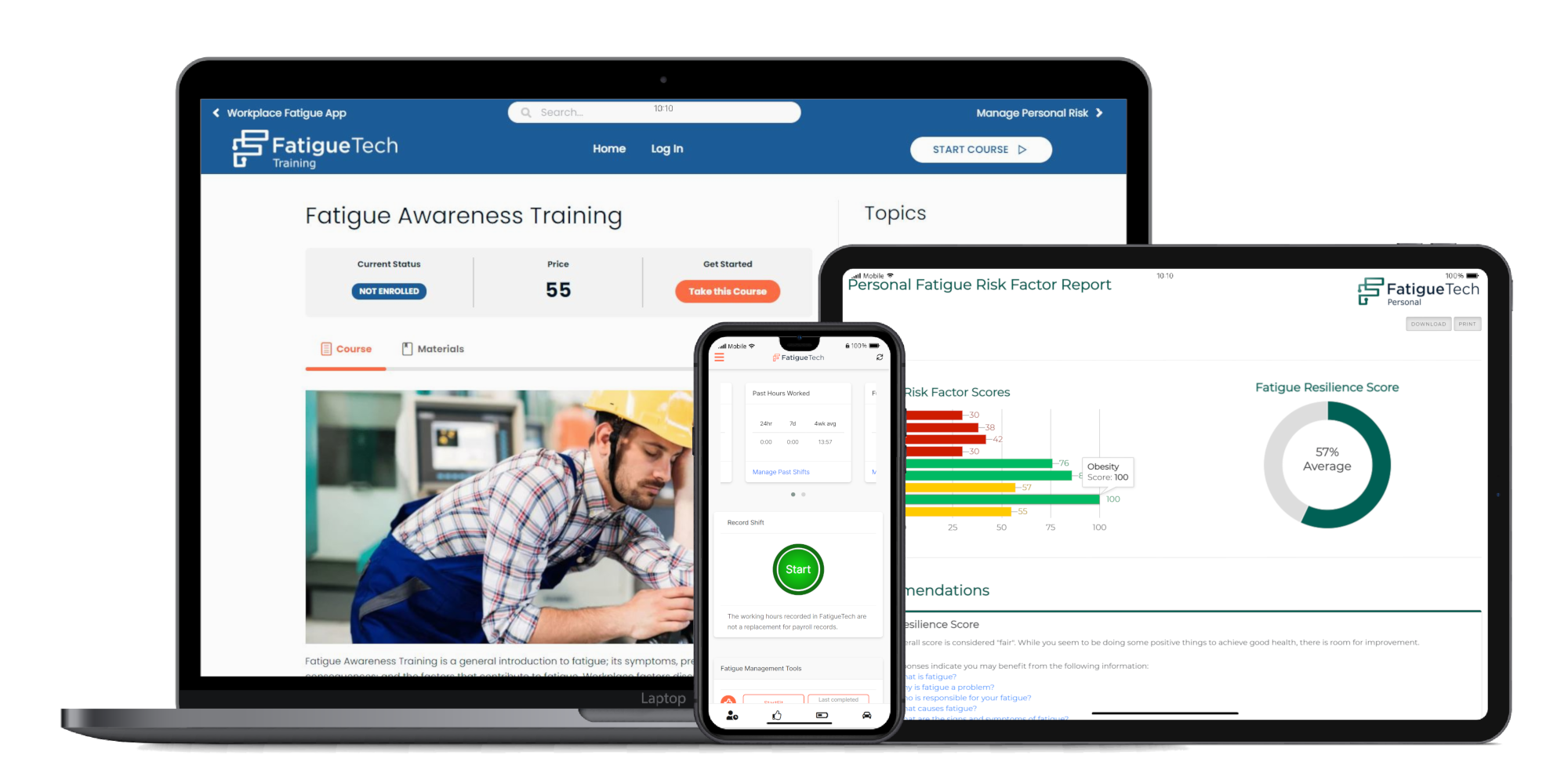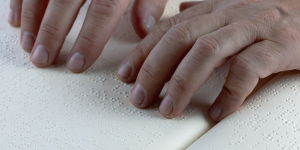Knowledge Centre
Search the library of resources and FAQs to help answer any fatigue questions or ask an expert any specific question you may have relating to the prevention and treatment of workplace or personal fatigue risks.
Topics
Intro to Fatigue
Develop a basic awareness of all the factors influencing an individuals risk of fatigue.
Sleep
Develop a basic awareness of all the factors influencing an individuals risk of fatigue.
Exercise
Develop a basic awareness of all the factors influencing an individuals risk of fatigue.
Mental Health
Develop a basic awareness of all the factors influencing an individuals risk of fatigue.
Nutrition
Develop a basic awareness of all the factors influencing an individuals risk of fatigue.
Journey Management
Develop a basic awareness of all the factors influencing an individuals risk of fatigue.
Family
Develop a basic awareness of all the factors influencing an individuals risk of fatigue.
FAQs
Develop a basic awareness of all the factors influencing an individuals risk of fatigue.
You currently don't have access to the full Knowledge Centre, Ask An Expert and Frequently Asked Questions. To access these features sign up today

Become a member
To gain access to the FatigueTech suite of products and services click Sign Up to begin your journey.
All fatigue resources
What are the best methods to improve sleep quality during menopause?
Many women report disturbed sleep during perimenopause and menopause. This often includes difficulty falling or staying asleep and waking through the night or very early in the morning. There are many possible contributing factors during this period, including: To improve sleep during perimenopause and menopause, the contributing factors that are specific to you will need……
Read MoreWhat factors increase the risk of a fatigue-related incident?
The following factors have been found to increase the risk of fatigue-related incidents (e.g. lane crossings) and accidents By planning your journey more carefully, you are more likely to stay fresh and vigilant at the wheel, safeguarding your own safety and the safety of others. The strategies outlined in the Journey Planning Guiding Principles document……
Read MoreThe impacts on circadian rhythm and melatonin production in visually impaired people
Light is captured through photoreceptors in the eyes which transmit this to the suprachiasmatic nucleus (SCN), or internal body clock, via a dedicated neural pathway. Each day the light-dark cycle resets the internal clock, which in turn synchronizes physiological and behavioural patterns known as our circadian rhythms. People who are visual impaired with no perception……
Read MoreOptimising sleep for night shift
In a 2018 article in the British Medical Journal (BMJ 2018;360:j5637 doi: 10.1136/bmj.j5637 [Published 1 March 2018]) the topic of optimsing sleep for night shift was covered with the aim to provide sleep management skills for the individual. The article presents the best evidence from trials, guidance material and expert opinion, but outlines the limited……
Read MoreManaging stress and Fatigue
Stress is something that has been with us for a long time. Even though the cause of our stress has changed, the response in the mind and body has remained the same. When stressed or in danger, the body engages its “fight or flight” response. This response evolved in ancient times when stressors were often……
Read MoreMealing timing and fatigue
Our bodies perform best when given a regular supply of food throughout the day rather than one large meal. This means that to start maximising your energy you need to have a good think about when you eat your meals, and how much you have. Once you find a good pattern of eating you will……
Read MoreMeal type and fatigue
It is often promoted that foods high in carbohydrate make you drowsy because they increase the uptake of the amino acid tryptophan by the brain. Tryptophan is a chemical that can work together with another important brain chemical called serotonin, to help promote a calming effect and sleepiness. Foods rich in protein, however, increase production……
Read MoreHydration
Your body needs adequate fluid and electrolytes in order to have any chance of feeling energised. If these needs are not met, then physical and mental fatigue will increase, as will the potential for incidents, accidents and health problems. Hot weather, particularly when or working or being physically active, in the heat puts greater demands……
Read MoreHow does alcohol affect sleep
Alcohol is a depressant that slows the nervous system down. It impacts on the quality of the naturally occurring sleep cycles, and can increase sleep disturbance. Some people will say, “alcohol helps them sleep.” This is true to a point! But it is also counter-productive. The figure below illustrates how alcohol affects sleep (red line).……
Read MoreHow does caffeine affect sleep
Caffeine stimulates the central nervous system and can artificially stimulate your senses, which makes you more alert. Peak alertness levels are generally reached 30-60 minutes after consumption. If too much is consumed, or it is consumed too close to bedtime, it can interfere with your ability to sleep by keeping you awake and disrupting naturally……
Read MoreIron levels and fatigue
Iron is a mineral. It is necessary to make haemoglobin (an oxygen carrying molecule) in the blood. If iron is not eaten in adequate amounts in the diet; anaemia, tiredness and fatigue will result. People at greatest risk are pregnant and menstruating women, vegetarians and athletes. If you think you may be low in blood……
Read More10 nutrition tips to beat fatigue
Eat breakfast based on breads, cereals low fat dairy and fruit. Pack a lunchbox with snack including at least 2 pieces of fruit. Portion dinner plate correctly with half the plate coloured vegetables, ¼ the plate potato, rice, pasta or bread; and palm size portion of meat. Eat to be comfortably satisfied not full to……
Read More











